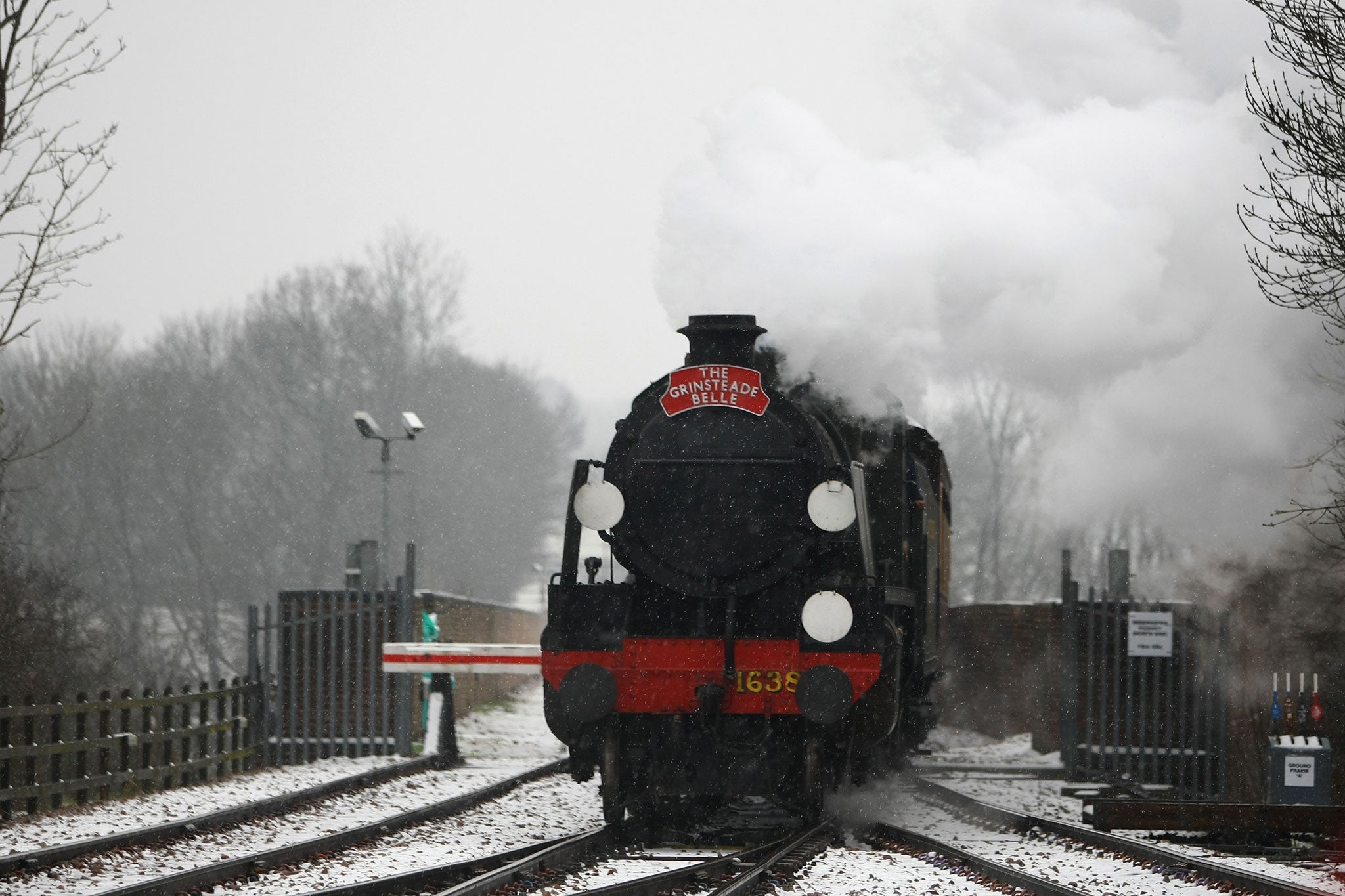Book review: Train Songs, Edited by Sean O'Brien and Don Paterson
Poets have taken to the rails since the first puff. The Writer on the Train signals his approval

Your support helps us to tell the story
From reproductive rights to climate change to Big Tech, The Independent is on the ground when the story is developing. Whether it's investigating the financials of Elon Musk's pro-Trump PAC or producing our latest documentary, 'The A Word', which shines a light on the American women fighting for reproductive rights, we know how important it is to parse out the facts from the messaging.
At such a critical moment in US history, we need reporters on the ground. Your donation allows us to keep sending journalists to speak to both sides of the story.
The Independent is trusted by Americans across the entire political spectrum. And unlike many other quality news outlets, we choose not to lock Americans out of our reporting and analysis with paywalls. We believe quality journalism should be available to everyone, paid for by those who can afford it.
Your support makes all the difference.Why a poetry anthology based around trains and train travel? Because, its editors Sean O'Brien and Don Paterson explain, there is no invention since the industrial revolution that so lends itself to poetry, or so bound up in love, death and the natural world – "because the railway train participates in them all".
To writers, trains offer a space for reverie, a series of glimpsed views to stimulate the imagination and an opportunity for covert people-watching. As Thomas Wolfe told us, trains aren't built to transport your body, but your mind.
Transport us they do; moving us as a nation to nostalgia and affection at one moment, frustration and fear the next. With such an orchestra of emotions to play on, O'Brien and Paterson make their choices carefully. Old favourites are here: Larkin's "Whitsun Weddings", Auden's "Night Mail" and Edward Thomas's "Adlestrop", drowsing in the sun, its connection to an unchanging rural England not the railway itself but a blackbird's song on an empty platform.
However, the selection includes many new delights. The railway is, they tell us, "as close as earthly things get to perfection". Walt Whitman would have agreed. In "To A Locomotive in Winter", he perfectly captures the steam engine's pornography of pistons and smoke, as it eats up North American distance. For him, the engine is the "Type of the Modern – emblem of motion and power – pulse of the continent".
Trust poets, then, to concentrate so frequently on those moments when the system breaks down, revelling in the glimpse it gives of the fate that awaits us all. In "The Very Slow Train", Mark Waldron finds himself moving at the speed "with which I grew/ and with which I will, in my old age, shrink back to the warm and waiting ground". Tony Harrison's "Changing at York" provides a different kind of time travel, returning us to a world before mobile phones, when station phone-boxes offered "A directory that runs from B to V,/ the yellow pages entries for HOTELS/ and TAXIS torn out, the smell of dossers' pee,/ saliva in the mouthpiece, whisky smells".
Today we are returned, apparently reluctantly, to an age of heroic construction projects, with Crossrail burrowing beneath London and HS2 poised to redraw the map. In this context it is instructive to read that great laureate of Nimbyism, William Wordsworth, bemoaning the approach of the tracks to his beloved Lake District: "Is then no nook of ground secure/ from rash assault?" Trains have been linked to poetry as long as they have been linked to progress. Like both, they continue to divide opinion.
James Attlee is Writer on the Train for First Great Western
Join our commenting forum
Join thought-provoking conversations, follow other Independent readers and see their replies
Comments